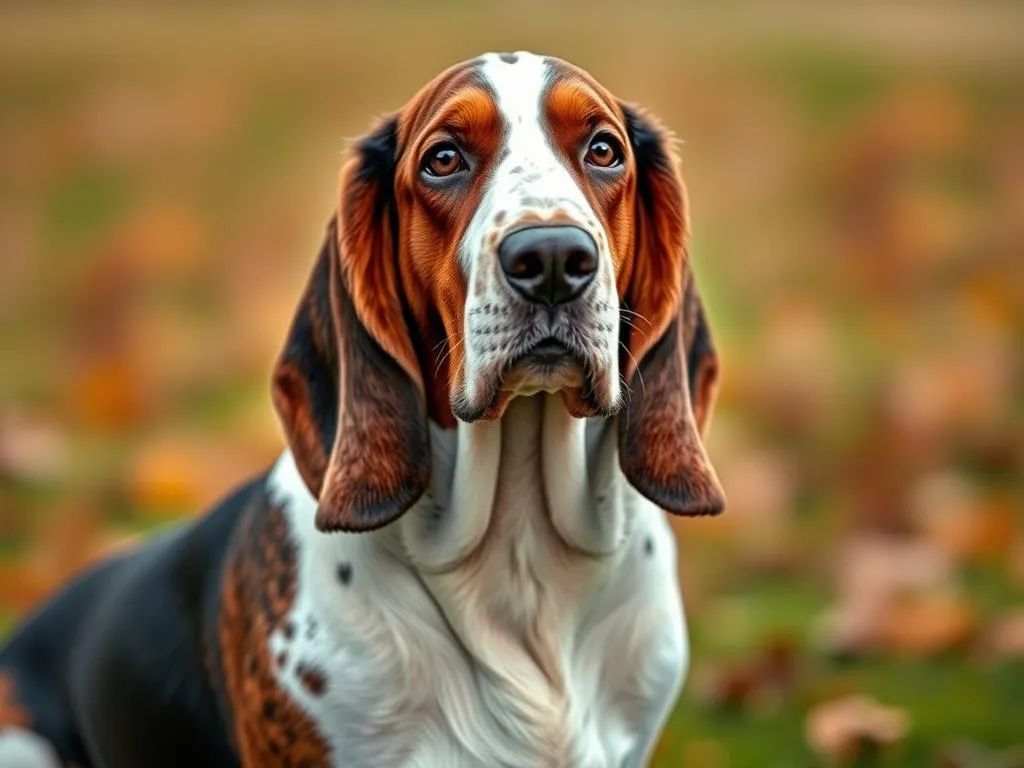
Introduction
Dogs have been companions to humans for thousands of years, serving various roles—from loyal pets to working partners. Among the plethora of dog breeds, hybrids have emerged, combining the best traits of their parent breeds. One such unique hybrid is the Basset Retriever, a delightful mix of the affectionate Basset Hound and the intelligent Golden Retriever. Understanding the characteristics and needs of different dog breeds, particularly hybrids like the Basset Retriever, is essential for prospective owners to make informed decisions.
Understanding the Basset Retriever
Definition and Origin
The Basset Retriever is a hybrid breed resulting from the cross between the Basset Hound and the Golden Retriever. The Basset Hound, known for its long ears and short legs, has origins tracing back to France, where it was bred for hunting small game due to its excellent sense of smell. The Golden Retriever, on the other hand, was developed in Scotland in the late 19th century, primarily for retrieving waterfowl during hunting.
The combination of these two distinct breeds has led to the development of the Basset Retriever, which captures the playful spirit of the Golden Retriever and the laid-back nature of the Basset Hound. This hybrid aims to provide a loving, loyal, and sociable companion, perfectly suited for families and individuals alike.
Physical Characteristics
Basset Retrievers typically exhibit a unique blend of physical traits inherited from their parent breeds.
-
Size, Weight, and Height: On average, Basset Retrievers weigh between 45 to 70 pounds and stand about 12 to 24 inches tall at the shoulder. Their size can vary significantly depending on the dominance of either parent breed in their lineage.
-
Coat Type and Color Variations: They usually boast a medium-length coat that can come in various colors, including golden, cream, and even some darker shades, often with white markings typical of Basset Hounds. Regular grooming is essential, with occasional brushing to manage shedding.
-
Distinctive Features: The Basset Retriever is characterized by long, droopy ears, a broad head, and a sturdy, muscular build. Their tails tend to be medium in length, often wagging enthusiastically to express their friendly demeanor.
Temperament and Personality
The personality traits of Basset Retrievers can be quite engaging and lovable. They inherit a balanced temperament, combining the friendly and sociable nature of the Golden Retriever with the more relaxed and easygoing demeanor of the Basset Hound.
-
General Personality Traits: Basset Retrievers are known for their affectionate nature, making them excellent family pets. They are playful, intelligent, and eager to please, which makes training relatively straightforward.
-
Comparison with Traits of Parent Breeds: While Golden Retrievers are typically more active and require ample exercise, Basset Retrievers may enjoy a more moderate activity level. This makes them suitable for families who prefer a less demanding exercise routine.
-
Suitability for Families, Singles, or Seniors: This hybrid breed is adaptable, making it a suitable companion for families with children, singles, and even seniors. Their gentle disposition allows them to thrive in various living situations, provided they receive sufficient love and care.
Health and Care
Common Health Issues
Like all breeds, Basset Retrievers may be prone to certain health issues inherited from their parent breeds.
-
Overview of Health Concerns: Common health concerns include hip dysplasia, ear infections, and obesity. The droopy ears of the Basset Hound can create a suitable environment for infections if not properly cared for. Regular veterinary check-ups are crucial for monitoring their health.
-
Preventative Care and Regular Check-Ups: Routine vet visits can help catch any potential issues early, ensuring a longer, healthier life for your Basset Retriever. Vaccinations, parasite control, and dental care should also be part of their healthcare regimen.
-
Importance of Genetic Screening in Hybrid Breeds: Genetic screening can help identify predisposed conditions, allowing owners to take preventative measures. Responsible breeding practices can minimize the risk of inheriting genetic disorders.
Nutrition Needs
Proper nutrition is fundamental to the health and well-being of Basset Retrievers.
-
Recommended Diet: A balanced diet rich in high-quality protein, healthy fats, and essential vitamins and minerals is vital. Look for dog food formulated for medium to large breeds that meet their specific energy needs.
-
Importance of Portion Control: Due to their propensity for obesity, it’s crucial to control portion sizes and monitor their weight. Treats should be given sparingly and should not exceed 10% of their daily caloric intake.
-
Discussion on Dietary Supplements: Depending on their health and age, some Basset Retrievers may benefit from dietary supplements, such as omega fatty acids for skin and coat health or joint support supplements for older dogs.
Exercise Requirements
While Basset Retrievers may not require as much exercise as their Golden Retriever parent, they still need regular physical activity.
-
Daily Exercise Needs: Aim for at least 30 to 60 minutes of moderate exercise each day, which can include walks, playtime in a secure yard, or interactive games.
-
Importance of Mental Stimulation: Mental stimulation is just as important as physical exercise. Engaging toys, puzzle feeders, and training sessions can help keep their minds active.
-
Recommendations for Socialization and Training: Early socialization and consistent training are vital to ensure a well-adjusted Basset Retriever. Expose them to various people, pets, and environments to foster a confident and friendly disposition.
Training and Socialization
Basic Training Techniques
Training a Basset Retriever can be an enjoyable experience due to their eager-to-please nature.
-
Techniques Effective for Training: Positive reinforcement techniques, such as treats, praise, and play, work best with this breed. Keeping training sessions short and fun will help maintain their attention.
-
Importance of Positive Reinforcement: Reward-based training fosters a strong bond between the dog and owner, enhancing the learning experience.
-
Common Behavioral Issues: Some common issues may include stubbornness, particularly when they catch an interesting scent. Addressing these challenges with patience and consistency is crucial.
Socialization Tips
Socialization plays a critical role in a Basset Retriever’s development.
-
Importance of Early Socialization: Exposing your pup to various people, environments, and other animals can help them become well-adjusted adults.
-
Suggested Activities: Visits to dog parks, puppy training classes, and organized playdates are excellent opportunities for socialization.
-
Signs of Anxiety or Aggression: Be aware of signs of anxiety or aggression, such as growling or hiding. Address these behaviors with gentle training techniques or consult a professional trainer if necessary.
Living with a Basset Retriever
Ideal Living Environment
Basset Retrievers are versatile and can adapt to various living situations, but certain environments are more suitable for their needs.
-
Best Types of Homes: They thrive in homes with ample space to move around. While they can live in apartments, access to a yard for playtime is beneficial.
-
Importance of Outdoor Space: A secure outdoor area allows them to explore and expend energy safely.
-
Accommodations for Their Specific Needs: Providing comfortable dog beds, chew toys, and interactive playthings will enrich their living environment.
Family Integration
The affectionate nature of Basset Retrievers makes them great companions for families.
-
How Basset Retrievers Interact with Children and Other Pets: They are generally good with children and can interact well with other pets, given proper introductions and socialization.
-
Tips for Integrating a Basset Retriever into a Multi-Pet Household: Gradual introductions are key. Allow them to meet on neutral territory and supervise their interactions until they are comfortable with each other.
-
Creating a Harmonious Living Environment: Establish routines for feeding, playtime, and training to create a structured environment that benefits everyone in the household.
Choosing a Basset Retriever
Finding a Reputable Breeder
When searching for a Basset Retriever, finding a reputable breeder is essential.
-
Key Qualities to Look for in a Breeder: Look for breeders who prioritize health testing, socialization, and have a genuine passion for the breed.
-
Questions to Ask Potential Breeders: Inquire about health screenings, the puppy’s socialization experiences, and any concerns related to the parent breeds.
-
Importance of Visiting the Breeding Facility: Visiting the facility allows you to see the living conditions of the puppies and their parents, ensuring they are raised in a nurturing environment.
Adoption Considerations
Adopting a Basset Retriever can be a fantastic option for potential owners.
-
Exploring Adoption Options: Check local shelters and breed-specific rescues for available Basset Retrievers. Many mixed breeds are in need of homes.
-
Benefits of Adopting from Shelters or Rescues: Adopted dogs often come with lower adoption fees and have been socialized with other pets and people in the shelter environment.
-
Tips for Assessing a Rescue Dog’s Temperament and Health: Spend time interacting with the dog to assess their behavior. Ask staff about the dog’s history and any known health issues.
Conclusion
In summary, the Basset Retriever is a delightful hybrid breed that combines the best traits of the Basset Hound and Golden Retriever. With their unique physical characteristics, affectionate temperament, and adaptability, they make excellent companions for a variety of households. Understanding their health needs, training requirements, and socialization tips is vital for ensuring a happy, healthy life for your Basset Retriever. Whether you choose to adopt or purchase from a breeder, the joy and companionship a Basset Retriever brings to your home are immeasurable. Embrace the journey of dog ownership, and enjoy the love and loyalty that this breed has to offer.









